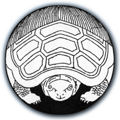Just got back a short five-day visit to London, where I went to support the launch of the UK edition of A Tale for the Time Being. Canongate, my wonderful UK publisher, is doing the most amazing, cutting-edge stuff with the publication and generating all sorts of buzz in the London book world.
 The hardcover is a beautiful, deconstructed book with an exposed spine (how I love that metaphor!), which is like a work of art, and the paperback edition has a fully interactive cover. Yes, that's right. A fully interactive cover that you operate with an app called Blippar. You download the app onto your smart phone or tablet, hold your device over the cover, and it comes to life! The red hinomaru peels back and reveals a moving montage and then offers links to areas where you can read excerpts and learn more about the book.
The hardcover is a beautiful, deconstructed book with an exposed spine (how I love that metaphor!), which is like a work of art, and the paperback edition has a fully interactive cover. Yes, that's right. A fully interactive cover that you operate with an app called Blippar. You download the app onto your smart phone or tablet, hold your device over the cover, and it comes to life! The red hinomaru peels back and reveals a moving montage and then offers links to areas where you can read excerpts and learn more about the book.
Canongate is releasing all the editions, the hardcover, paperback, ebook and audio book, simultaneously, and they've given me my very own TV channel, too. Amazing!
 During the five days in London, I did interviews for BBC's Nightwaves (online now), the Guardian Books podcast (yet to come), and The National (yet to come). I taught a class in "How to Live More Consciously" (aka How to Be a Better Time Being) at Alain de Botton's School of Life, and had a wonderful conversation on stage with author Mary Loudon at the Women of the World Festival at Southbank Centre. And finally, Canongate held a lovely luncheon with the team who has worked so hard on the publication, and I was thrilled to meet authors Philip Pullman and Steven Hall, who took time away from their writing to come celebrate with us. I was moved and honored.
During the five days in London, I did interviews for BBC's Nightwaves (online now), the Guardian Books podcast (yet to come), and The National (yet to come). I taught a class in "How to Live More Consciously" (aka How to Be a Better Time Being) at Alain de Botton's School of Life, and had a wonderful conversation on stage with author Mary Loudon at the Women of the World Festival at Southbank Centre. And finally, Canongate held a lovely luncheon with the team who has worked so hard on the publication, and I was thrilled to meet authors Philip Pullman and Steven Hall, who took time away from their writing to come celebrate with us. I was moved and honored.
The highlight of the trip was meeting people: the wonderful Canongate editors and designers and marketing and publicity teams; the brilliant authors; the broadcasters and journalists; and most of all, the readers, who took precious time away from their busy lives to come out and to support a book. A book! In this day and age, how amazing is that?

I had a little time to spare, so I went to the British Museum, and as I studied the engravings on fully interactive Rosetta Stone—the real stone, not the language-learning software, which came up #1 in my Google search ranking, listed as "Official Rosetta Stone®"—I couldn't help but marvel at...what? At the power of our ancient desire to communicate. At the ever-evolving nature of text and our expectation of what it can and ought to do. At its increasingly ephemeral nature.
Because even if the Official Rosetta Stone® is #1 in Google ranking now, the real stone has survived for more than two thousand years and will probably outlast both the software and the computers we need to fully interact with it. And this is okay, because humans will always want to talk to each other, and we will always find ways of learning each other's languages and communicating our stories. Whether we're chiseling stone or programming pixels, it's just our nature to be fully interactive.

